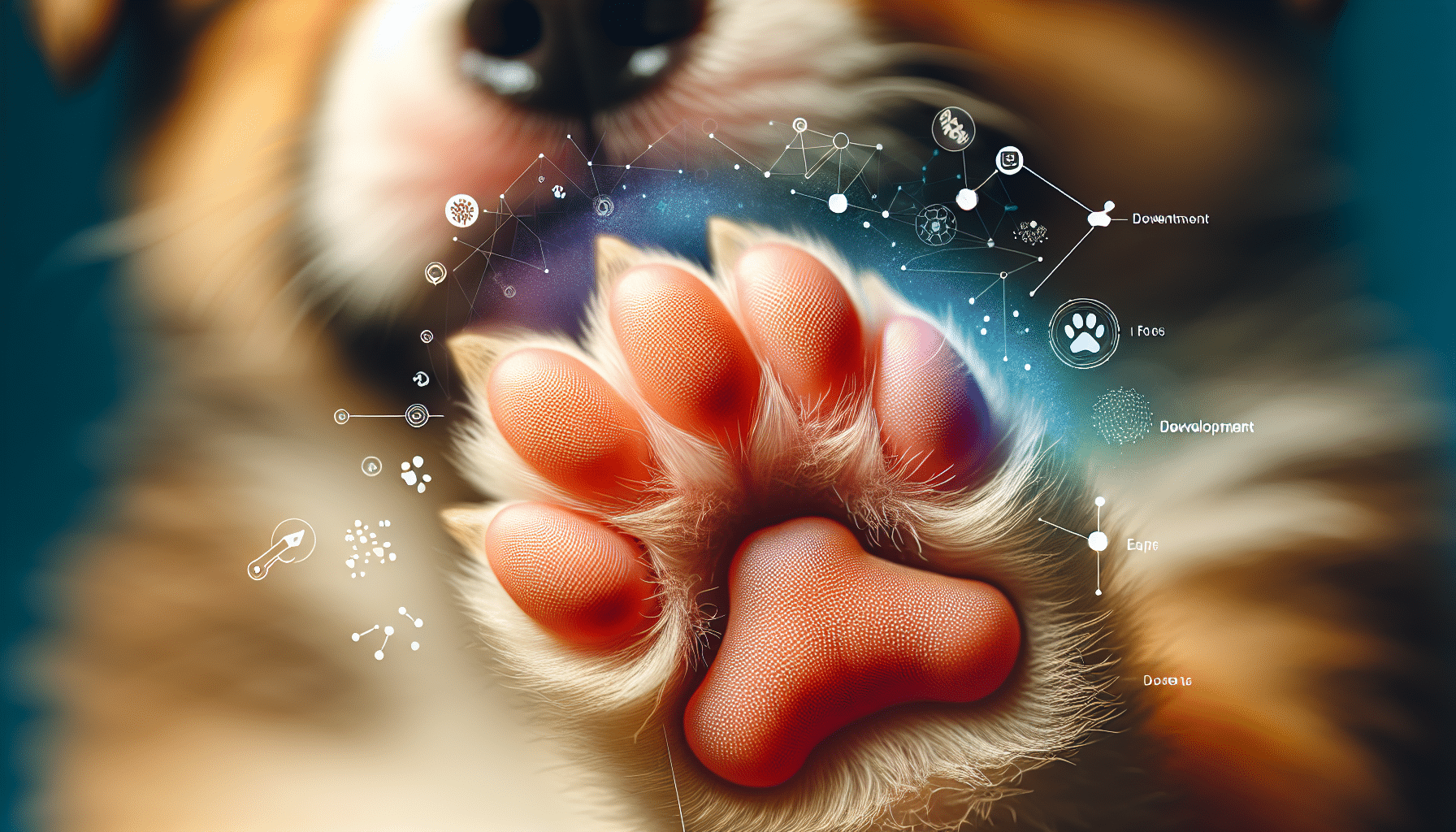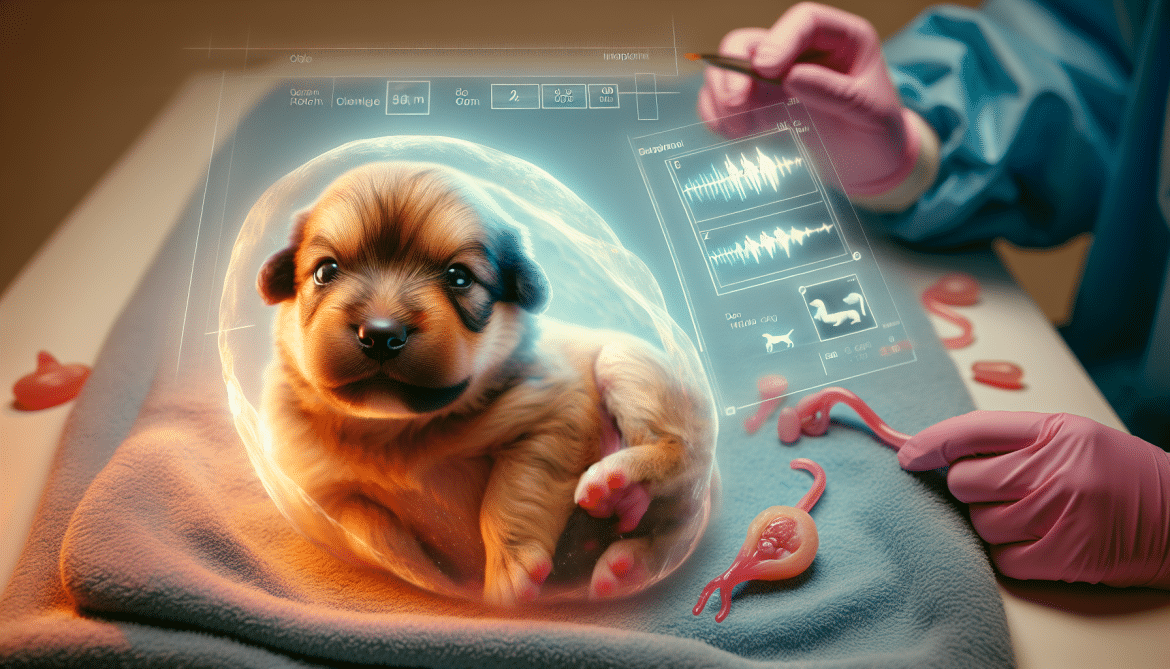So you've brought home a new furry bundle of joy, a cute little puppy that has stolen your heart. But as adorable as they may be, puppies go through a series of developmental stages that can sometimes be challenging to understand. From the neonatal stage, where they are completely dependent on their mother, to the socialization stage, where they learn to interact with the world around them, it's important to have a grasp on these early development stages in order to provide the best care and guidance for your new four-legged friend. In this article, we will explore and explain the different stages of a puppy's early development, giving you valuable insight into their growth and behavior.

This image is property of images.unsplash.com.
Physical Development
Birth
The birth of a puppy is a remarkable and delicate process. Once the mother dog goes into labor, she will instinctively give birth to her puppies. The duration of labor can vary, but typically it lasts for a few hours. The newborn puppies are usually covered in amniotic fluid and will be attached to the umbilical cord. It's essential to ensure that each puppy is safely detached from the cord and able to breathe properly. Drying the puppies with a clean towel and providing them with a warm and comfortable space is crucial for their well-being.
Neonatal Period
During the neonatal period, which lasts for approximately two weeks, the puppies are entirely dependent on their mother for nutrition and care. Their eyes and ears are sealed shut, and they rely on their sense of smell and touch to find their mother's milk. The mother dog will nurse her puppies and stimulate their elimination by licking their abdomen. It's crucial during this stage to provide a quiet and calm environment for both the mother and her puppies to promote their healthy development.
Transitional Period
The transitional period occurs between the 2nd and 4th week of a puppy's life. During this stage, their eyes and ears begin to open, and they start to gain more control over their bodily functions. Puppies will start to explore their surroundings, attempt to stand and walk, and engage in more social interaction with their littermates. It's essential to provide a safe and stimulating environment during this period to encourage their physical and mental development.
Socialization Period
The socialization period begins around week 3 and continues until week 12. During this critical stage, puppies start to learn from their environment, and their interactions with other animals and humans shape their behavior and social skills in the future. Exposing puppies to different stimuli, such as sounds, textures, and experiences, will help them become well-adjusted and confident dogs. Introducing them to a variety of people, animals, and environments will reduce the likelihood of fear and aggression as they mature.
Juvenile Period
The juvenile period starts at approximately 3 months and lasts until sexual maturity, which can vary depending on the breed. During this phase, puppies are more independent and curious. They are learning to establish hierarchies within their litter and develop their physical and mental abilities. This period is an ideal time to start obedience training and teaching basic commands. Consistency, positive reinforcement, and patience are key to guide them through this stage and set them up for well-rounded adult behavior.
Adolescence
Adolescence in dogs typically starts around 6 months and can last up to 2 years. This stage marks the maturing of a puppy's physical development and sexual maturity. Hormonal changes may lead to behavioral challenges and an increase in energy levels. It's essential to continue providing the necessary training and structure during this period to ensure they grow into well-behaved adult dogs. Consistency, positive reinforcement, and understanding will help them navigate this phase successfully.
Cognitive Development
Neonatal Period
During the neonatal period, cognitive development in puppies is primarily focused on sensory perception and motor skills. They rely on their sense of touch and smell to explore their environment and locate their mother for food and warmth. Their cognitive capabilities are still developing and will progress significantly during the following stages.
Transitional Period
In the transitional period, puppies' cognitive development advances as their senses continue to mature. They gain the ability to see and hear, and their awareness of their surroundings expands. They start to recognize their littermates and learn to engage in social play and exploration. Providing them with stimulating toys and gentle interactions will aid in their cognitive growth during this time.
Socialization Period
The socialization period plays a significant role in a puppy's cognitive development. Their ability to learn from their environment and process social cues intensifies during this stage. Puppies learn to understand basic commands, solve simple problems, and learn from their interactions with other animals and humans. Engaging in positive training exercises, interactive play, and consistent reinforcement will promote their cognitive growth during this period.
Juvenile Period
During the juvenile period, puppies' cognitive abilities continue to evolve as they gain more independence. They become more curious and interested in exploring their environment, learning through trial and error. Their problem-solving skills improve, and they continue to refine their ability to understand and respond to commands. Incorporating mentally stimulating activities, such as puzzle toys or obedience training, will contribute to their cognitive development during this stage.
Adolescence
In adolescence, puppies' cognitive development reaches its peak as they mature into adults. They have a better understanding of their environment, increased problem-solving capabilities, and enhanced memory retention. They can learn complex commands and engage in more advanced training. Maintaining consistency in training and providing mental challenges will help them continue to develop their cognitive abilities during this crucial stage.

This image is property of images.unsplash.com.
Behavioral Development
Neonatal Period
During the neonatal period, puppies' behavioral development is mainly focused on instinctual behaviors necessary for survival. They rely on their instincts to seek warmth, food, and eliminate waste. They will also exhibit instinctual behaviors such as crawling and vocalizing to communicate with their littermates and mother. Their behavioral responses are primarily driven by their immediate needs.
Transitional Period
The transitional period marks the beginning of more conscious behaviors in puppies. They start to engage in exploratory behaviors, attempt to stand and walk, and show more interest in their surroundings. Puppies may also exhibit their first signs of play behavior during this period, interacting with their littermates through gentle wrestling and pawing. This phase sets the foundation for more complex behaviors in the future.
Socialization Period
The socialization period is crucial for shaping a puppy's behavior and temperament. Puppies become more aware of their environment, and their behaviors are influenced by their interactions with other animals and humans. Positive experiences during this period can lead to confident, well-adjusted dogs, while negative experiences may result in fear or aggression. Introducing puppies to various social situations, providing gentle exposure to different stimuli, and appropriate socialization will foster positive behavioral development in puppies.
Juvenile Period
As puppies enter the juvenile period, their behaviors become more pronounced and exploratory. They are curious about their environment and eager to learn. During this phase, it's important to establish boundaries and teach proper behavior through consistent and positive reinforcement. Engaging in obedience training and providing mental and physical stimulation will help channel their energy and guide them towards appropriate behaviors.
Adolescence
Adolescence is a challenging period for both puppies and their owners. Hormonal changes during this phase can lead to behavioral challenges such as increased energy levels, dominance displays, and testing boundaries. Consistent training, positive reinforcement, and addressing any behavioral issues promptly will help navigate this phase successfully. Patience, understanding, and maintaining a structured routine are key to ensuring a well-behaved adult dog.
Feeding and Nutrition
Milk Diet
The milk diet is crucial during the neonatal period. Puppies rely on their mother's milk, which provides all the essential nutrients they need for their growth and development. Mother's milk contains antibodies that help protect puppies from infections and supports their immune system. It's important to ensure that the mother dog receives a balanced and nutritious diet to produce quality milk for her puppies.
Weaning
Around three to four weeks of age, puppies begin the weaning process. This involves gradually introducing solid food alongside their mother's milk. Initially, the food should be soft and easily digestible, such as moistened puppy kibble or gruel. As the puppies become accustomed to eating solid food, the amount of milk they consume will naturally decrease. It's important to monitor their progress and ensure they are transitioning to solid food successfully.
Introduction to Solid Food
Once the weaning process is complete, puppies can be fed a balanced and appropriate diet formulated specifically for growing dogs. High-quality commercial puppy food or a homemade diet approved by a veterinarian are suitable options. Providing regular, small meals throughout the day will help maintain their energy levels and promote healthy growth. It's essential to follow feeding guidelines based on the puppy's weight, age, and breed to prevent overfeeding or underfeeding.
Transition to Adult Diet
Puppies typically transition to an adult diet around 12 months of age, but this can vary depending on the breed. The transition should be gradual to avoid digestive upset. Introduce the new adult food by mixing it with the current puppy food over a period of seven to ten days, gradually increasing the ratio of adult food. It's important to select a high-quality adult dog food that meets their nutritional needs and consult with a veterinarian for specific dietary recommendations.
This image is property of images.unsplash.com.
Growth Milestones
Physical Growth
The physical growth of puppies is a fascinating process to witness. From birth to adulthood, puppies go through significant changes in size, weight, and overall body structure. The growth rate varies depending on the breed and individual genetics. During the first year, puppies experience rapid growth, with the most substantial growth occurring in the first six months. Regular monitoring of their weight and body condition can help ensure their growth is on track.
Dental Development
Puppies' dental development begins around three weeks of age when their baby teeth, also known as deciduous teeth, start to erupt. By six to eight weeks, all their baby teeth should be present. Around four months of age, the baby teeth start to be replaced by permanent teeth. This can be a challenging time for puppies, as teething may cause discomfort. Providing appropriate chew toys and maintaining good oral hygiene by brushing their teeth regularly will help them through this process.
Teething
Teething is a natural process that occurs as puppies' baby teeth are replaced by their permanent teeth. It usually starts around four months of age and can continue until seven months or even longer. During this time, puppies may experience discomfort and may exhibit excessive chewing or gnawing behaviors as a way to relieve the pain. It's important to provide them with appropriate chew toys to redirect their chewing behavior and avoid destructive chewing.
Reproductive Development
Reproductive development differs between males and females. Male puppies' testicles should descend into the scrotum by six to twelve weeks of age, while females' reproductive organs continue to develop internally. It's important to consult with a veterinarian regarding the appropriate time for spaying or neutering, which can vary depending on breed, health considerations, and personal preferences. Spaying or neutering can help prevent unwanted litters and certain health issues.
Health and Veterinary Care
Vaccinations
Vaccinations are essential in preventing infectious diseases in puppies. Puppies receive immunity from their mother's milk, but this immunity gradually wanes over time. Vaccinations should begin around six to eight weeks of age and continue at regular intervals until the puppy has received the necessary core vaccinations. Core vaccines protect against diseases such as distemper, parvovirus, canine hepatitis, and rabies. Consult with a veterinarian to establish a vaccination schedule based on your puppy's needs.
Deworming
Puppies are often born with intestinal parasites that can be passed from the mother or contracted from their environment. Deworming medication is necessary to eliminate parasites and prevent any potential health issues. Puppies should be dewormed at specific intervals starting at two weeks of age, with subsequent treatments scheduled every two to three weeks until they are around three months old. Regular fecal exams and deworming treatments should continue throughout their first year.
Parasite Prevention
Preventing parasites, such as fleas, ticks, and heartworms, is crucial for a puppy's well-being. Fleas and ticks can transmit diseases, while heartworms can cause severe damage to a puppy's heart and other vital organs. Regular preventative medications should be initiated as advised by a veterinarian. Proper grooming, regular inspection for fleas and ticks, and providing a clean living environment will also contribute to effective parasite prevention.
Check-ups and Examinations
Regular check-ups and examinations are necessary to monitor a puppy's growth and overall health. Routine veterinary visits should include physical examinations, vaccinations, deworming, and discussions about developmental milestones. Veterinarians are equipped to detect any early signs of health issues and provide appropriate guidance for care. Establishing a good relationship with a veterinarian from an early age will help ensure your puppy receives proper care throughout its life.

Training and Socialization
House Training
House training is an essential aspect of a puppy's early development. The goal is to teach them to eliminate waste in appropriate areas and avoid accidents indoors. Establishing a consistent routine, rewarding desired behavior, and supervising their bathroom breaks are key components of successful house training. It's important to be patient and provide positive reinforcement during this process to establish good habits and a strong bond with your puppy.
Basic Obedience Training
Basic obedience training lays the foundation for a well-behaved dog. Teaching commands such as sit, stay, come, and walking on a leash is crucial for their safety and the overall relationship between you and your puppy. Positive reinforcement, consistency, and patience are key when training puppies. Short training sessions, using treats or toys as rewards, and making each session enjoyable will help them learn quickly and develop good listening skills.
Socialization with People
Socializing puppies with different people is crucial for their development and future behavior. Exposing them to a variety of individuals, including children, adults, and the elderly, will help them become comfortable in various social situations. Encourage positive interactions by rewarding calm and friendly behavior. Gradually expose them to different environments, noises, and handling to reduce anxiety and build their confidence around people.
Socialization with Other Dogs
Socialization with other dogs is equally vital to teach puppies appropriate dog-to-dog interaction. Exposing them to friendly and well-behaved dogs will help them develop appropriate communication skills and avoid fear or aggression towards other canines. Organized playdates, supervised interactions in controlled environments, and puppy socialization classes are excellent opportunities to expose them to a variety of dogs and help them learn appropriate social behavior.
Common Challenges in Early Development
Separation Anxiety
Many puppies experience separation anxiety, which is characterized by distress when separated from their owners or primary caregivers. Symptoms may include excessive barking, destructive behavior, and house soiling. Separation anxiety can be mitigated by gradually increasing the time spent away from the puppy, providing them with interactive toys or puzzles to keep them occupied, and creating a safe and comforting environment in your absence. Consultation with a professional dog trainer or behaviorist may be beneficial in severe cases.
Teething Problems
Teething is a natural part of a puppy's development, but it can be a challenging time for both puppies and their owners. Puppies may experience discomfort, excessive chewing, and irritability during this phase. Providing appropriate chew toys, frozen washcloths, or teething rings can help alleviate the pain and redirect their chewing behavior. Ensuring a safe and puppy-proofed environment can also prevent destructive chewing on household items.
Nipping and Biting
Nipping and biting are typical behaviors exhibited by puppies during play and exploration. However, it's necessary to teach them bite inhibition to prevent future issues. Consistency and positive reinforcement are essential in teaching them soft-mouthed behavior. Whenever puppies nip or bite too hard, redirecting their attention to a chew toy and rewarding calm behavior will help them understand appropriate play and avoid unintentional harm.
Fear and Anxiety
Puppies may exhibit fear or anxiety in response to new situations, loud noises, or unfamiliar environments. Patience, positive reinforcement, and gradually exposing them to these situations will help reduce their fear and anxiety. Avoid forcing or overwhelming them, as this can reinforce their fears. Providing a safe space, using comforting cues such as a crate or familiar toys, and engaging in positive training exercises will help build their confidence and resilience.

Understanding Puppy Behavior
Body Language
Understanding a puppy's body language is crucial for effectively communicating and responding to their needs and emotions. Puppies use various signals such as tail wagging, ear position, body posture, and facial expressions to convey their emotions. Paying attention to their body language can help identify signs of fear, anxiety, playfulness, or aggression. By recognizing their cues, you can adjust your behavior accordingly to promote a positive and safe interaction.
Communication Signals
Puppies communicate not only through body language but also through vocalizations and specific behaviors. Whining, barking, growling, and howling are examples of vocal communication. Each vocalization indicates different emotions, such as excitement, fear, or the need for attention. Puppies also use behaviors like tail wagging, jumping, or rolling over to convey their intentions or needs. Observing and responding appropriately to their communication signals will help strengthen the bond between you and your puppy.
Play Behavior
Play behavior is essential for a puppy's physical and social development. Through play, they learn valuable skills such as coordination, bite inhibition, and communication. Play can take various forms, including chase, wrestling, and tug-of-war. It's essential to engage in positive and supervised play sessions with your puppy to ensure they learn appropriate play behaviors. Avoid rough play or games that could encourage aggressive behavior.
Aggression and Dominance
Understanding and managing aggression is crucial for the safety of both puppies and those around them. Aggressive behavior in puppies can be rooted in fear, resource guarding, or social dominance. Recognizing signs of aggression, such as growling, baring teeth, or lunging, is essential to address any potential issues promptly. Consultation with a professional dog trainer or behaviorist is recommended to develop a tailored training plan to address aggression and establish appropriate social behaviors.
Creating a Healthy Environment
Safe and Comfortable Living Space
Creating a safe and comfortable living space is essential for a puppy's well-being. Providing a designated area, such as a crate or puppy-proofed room, will give them a secure space to relax and sleep. Remove any potential hazards, such as toxic plants or small objects that they could swallow. Providing soft bedding, toys, and access to fresh water will ensure their physical and emotional comfort.
Proper Nutrition and Hydration
Proper nutrition and hydration are vital for a puppy's growth and overall health. Feeding them a complete and balanced diet, formulated specifically for puppies, will provide the necessary nutrients for their development. Ensure they have access to clean, fresh water at all times. Monitoring their food intake, following feeding guidelines, and consulting with a veterinarian will help ensure they receive proper nutrition based on their individual needs.
Regular Exercise and Stimulation
Regular exercise and mental stimulation are crucial for a puppy's overall health and well-being. Puppies have lots of energy and need plenty of opportunities to burn it off. Engaging in age-appropriate exercise, such as short walks, play sessions, and interactive toys, will help them release energy and prevent destructive behaviors. Mental stimulation, such as puzzle toys or training sessions, will also keep their minds active and prevent boredom.
Positive Reinforcement
Positive reinforcement is a highly effective method for training and shaping a puppy's behavior. Rewarding desired behaviors with treats, praise, or play encourages them to repeat those behaviors. This approach builds a positive association and fosters a strong bond between you and your puppy. Avoid punishment-based techniques, as they can lead to fear or anxiety. Instead, focus on rewarding and reinforcing the behaviors you want to see in your puppy.
In conclusion, understanding the early development stages of puppies is essential for providing optimal care and guidance during their growth. From birth to adolescence, each stage presents unique challenges and opportunities for growth. By focusing on their physical, cognitive, and behavioral development, as well as their feeding and nutritional needs, growth milestones, health and veterinary care, training and socialization, challenges, understanding their behavior, and creating a healthy environment, you can help your puppy thrive and become a well-rounded adult dog. Remember, always approach their development with a friendly and positive tone, and enjoy the journey of raising a happy and healthy companion.



